
Senna hebecarpa, with the common names American senna and wild senna, is a species of legume native to eastern North America.
Scirpus longii is a species of flowering plant in the sedge family known by the common name Long's bulrush. It is native to eastern North America, where it is limited to the Atlantic coastal plain.

Carex cumulata, common names clustered sedge, piled sedge, and piled-up sedge is a species of Carex native to North America. It is a perennial.

Carex tuckermanii, commonly known as Tuckerman's sedge, is a species of true sedge in the family Cyperaceae. It is a perennial plant native to North America.
Carex reznicekii, known as Reznicek's sedge, is a species of Carex native to North America. It is a perennial. Described initially from a New York population, this species was named in 2006 in honor of the botanist Anton Reznicek, a specialist in the genus Carex.
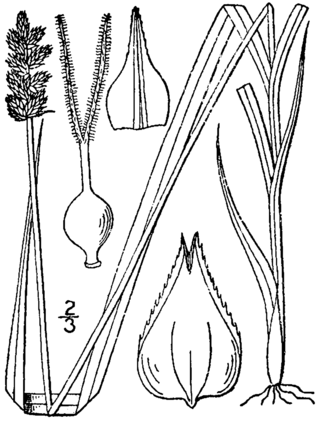
Carex alopecoidea, common names foxtail sedge and northern fox sedge, is a species of Carex native to North America. It is listed as threatened in Connecticut. It is listed as endangered in Indiana, New Jersey, Ohio, as possibly extirpated in Maine, as threatened in Massachusetts, and as endangered and possibly extirpated in Tennessee.
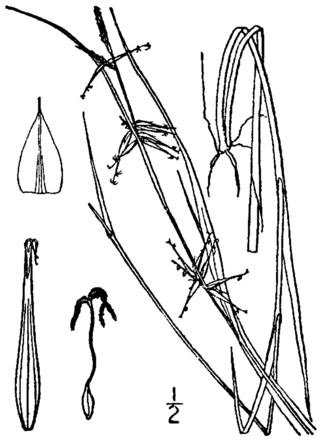
Carex collinsii, common name Collins' sedge, is a species of Carex native to North America. It is listed as a special concern species and believed extirpated in Connecticut. It is listed as endangered in New York, as threatened in Pennsylvania, and its historical range included Rhode Island.
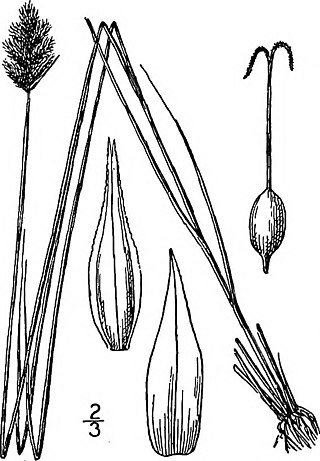
Carex crawfordii, common name Crawford sedge, is a species of Carex native to North America.

Carex davisii, known as Davis' sedge or awned graceful sedge, is a species of Carex native to North America. It is listed as an endangered, threatened, or species of concern across much of edge of its range. It was named in the 1820s by Lewis David de Schweinitz and John Torrey in honor of Emerson Davis (1798–1866), a Massachusetts educator and "enthusiastic student of the genus" Carex.
Carex hitchcockiana, common name Hitchcock's sedge, is a Carex species that is native to North America. It is listed as endangered in Maryland, as threatened in New York and Tennessee, and as a species of special concern in Connecticut and Massachusetts.
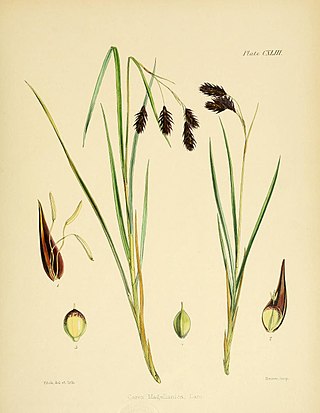
Carex magellanica, is a perennial Carex species native to North America, Europe and the subarctic Northern hemisphere. Although it is considered a stable species worldwide, it is listed as endangered in Connecticut.

Carex novae-angliae, the New England sedge, is a Carex species that is native to North America.
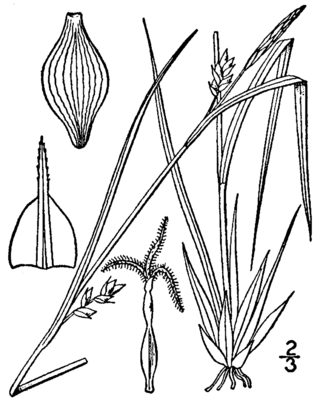
Carex oligocarpa, common name richwoods sedge, eastern few-fruited sedge, few-fruit sedge, and few-fruited sedge is a Carex species that is native to North America. It is a perennial.

Carex polymorpha common names variable sedge and many forms sedge, is a perennial species of Carex native to North America.

Carex prairea, common name prairie sedge, is a species of Carex native to North America. It is a perennial.
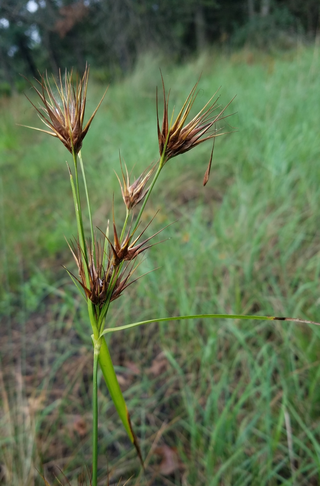
Rhynchospora macrostachya, the tall horned beaksedge or tall beaksedge, is a plant in the sedge family, Cyperaceae. It is a perennial.
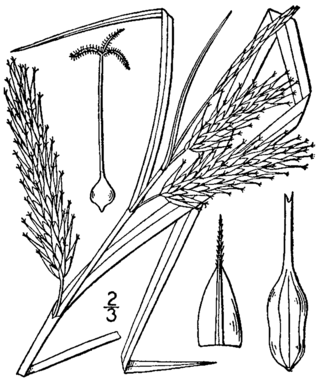
Carex schweinitzii, common name Schweinitz's sedge, is a Carex species native to North America. It is a perennial.
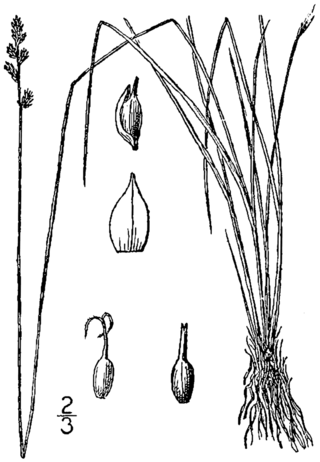
Carex sterilis, common names dioecious sedge, sterile sedge and Atlantic sedge, is a perennial plant native to North America.

Carex typhina, often called the cattail sedge, is a rare species of Carex known to grow in wetlands. It is native to North America.

Carex willdenowii, common name Willdenow's sedge, is a species of Carex native to North America.



















